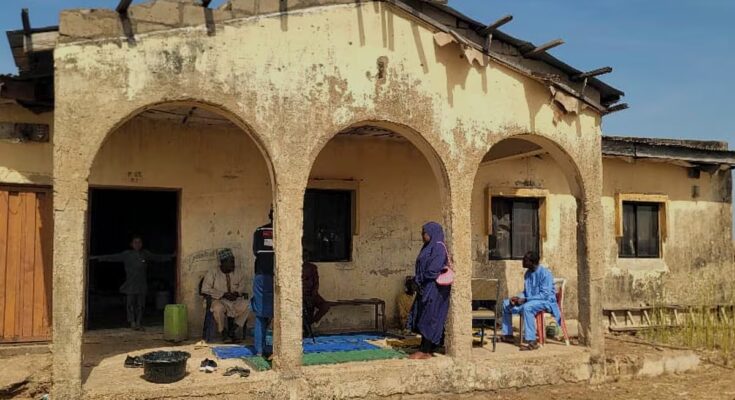This week several gunmen kidnapped around 77 girls in northwestern Nigeria in two attacks on schools. The first incident occurred in the early hours of Monday, at a secondary school in Maga town, Kebbi state, when kidnappers scaled the school wall and took away 25 girls and a teacher after killing the vice-principal and a security guard, who were trying to protect the students. The second occurred this Friday, when a group of criminals entered a school in Papiri, Niger state, and kidnapped at least 52 girls and several teachers, also killing a guard. The governor of Kwara State has already ordered the closure of schools in four municipalities on Tuesday until their safety is ensured.
After the first attack, in Kebbi, law enforcement and military personnel intervened to try to locate the kidnapped girls. Two students managed to escape from their captors even as they were forcibly taken to a wooded area. One of them had to be admitted to hospital because she injured her foot. The Minister of Information, Mohammed Idris Malagi, assured that the authorities “share the pain” of the affected families and that they are working to save the girls. “President Bola Tinubu remains steadfast in his commitment to protect all Nigerians, especially school children,” he added.
The second attack, just four days later, occurred between 1am and 3am at Saint Mary’s Catholic School, which hosts primary and secondary students. Although local media gave an initial figure of 52 girls abducted, the number could be higher. “The exact number of abducted schoolgirls has not yet been confirmed as security agencies continue to assess the situation,” Abubakar Usman, secretary to the Niger state government, said on Friday.
The two mass abductions come amid a debate over insecurity in Nigeria after US President Donald Trump threatened to intervene militarily in the country to protect Christians, although many of the abducted girls are Muslims, the majority religion in northern Nigeria. In another attack on a church in Ekiti state, southwest of the capital Abuja, gunmen killed two people during a mass and kidnapped dozens of worshipers on Tuesday. Nigerian government sources assure that President Tinubu has suspended a trip to South Africa and Angola to address the crisis.
The kidnappings sparked a wave of outrage. The NGO Save the Children called for immediate measures from the government. “This is the painful realization of the persistent threats to education in Nigeria, especially in the northwest, where children, especially girls, continue to face violence and insecurity,” the organization said in a statement. According to NGO data, between 2014 and 2022, 1,683 students were abducted and 184 killed in Nigeria in a total of 70 attacks on schools, of which 49 occurred in the north-west of the country. “These repeated attacks on schools undermine the right to education, traumatize children and their communities, and endanger Nigeria’s future,” the statement added.
For its part, Amnesty International (AI) accuses the authorities of inaction. “The latest mass kidnappings clearly show that President Bola Tinubu and his government have no effective plan to end years of atrocities by armed groups and men, who increasingly enjoy impunity in many parts of Nigeria,” Isa Sanusi, AI Nigeria director, said in a press release. “Authorities have failed to implement security plans for schools in vulnerable areas despite the abduction of hundreds of schoolchildren. These failures have led to declining school enrollments, a major obstacle to girls’ education. Authorities must ensure a safe learning environment and address the risks of further abductions in the country,” he added.
Since the kidnapping of the 276 Chibok girls in 2014, which sparked a global backlash, the schoolgirl kidnapping industry has flourished in Nigeria. While this crime was committed by the jihadist group Boko Haram in the north-east of the country, the kidnappings that occur in the north-western states are the responsibility of groups of criminals without ideological or religious claims, who in Nigeria are known as “bandits”. These criminal gangs, who also engage in looting and kidnapping citizens in transport and work centers, hide from security forces in forested areas. In recent years they have obtained large revenues in exchange for the release of kidnapped people, although in 2022 the federal government banned the payment of ransoms.



